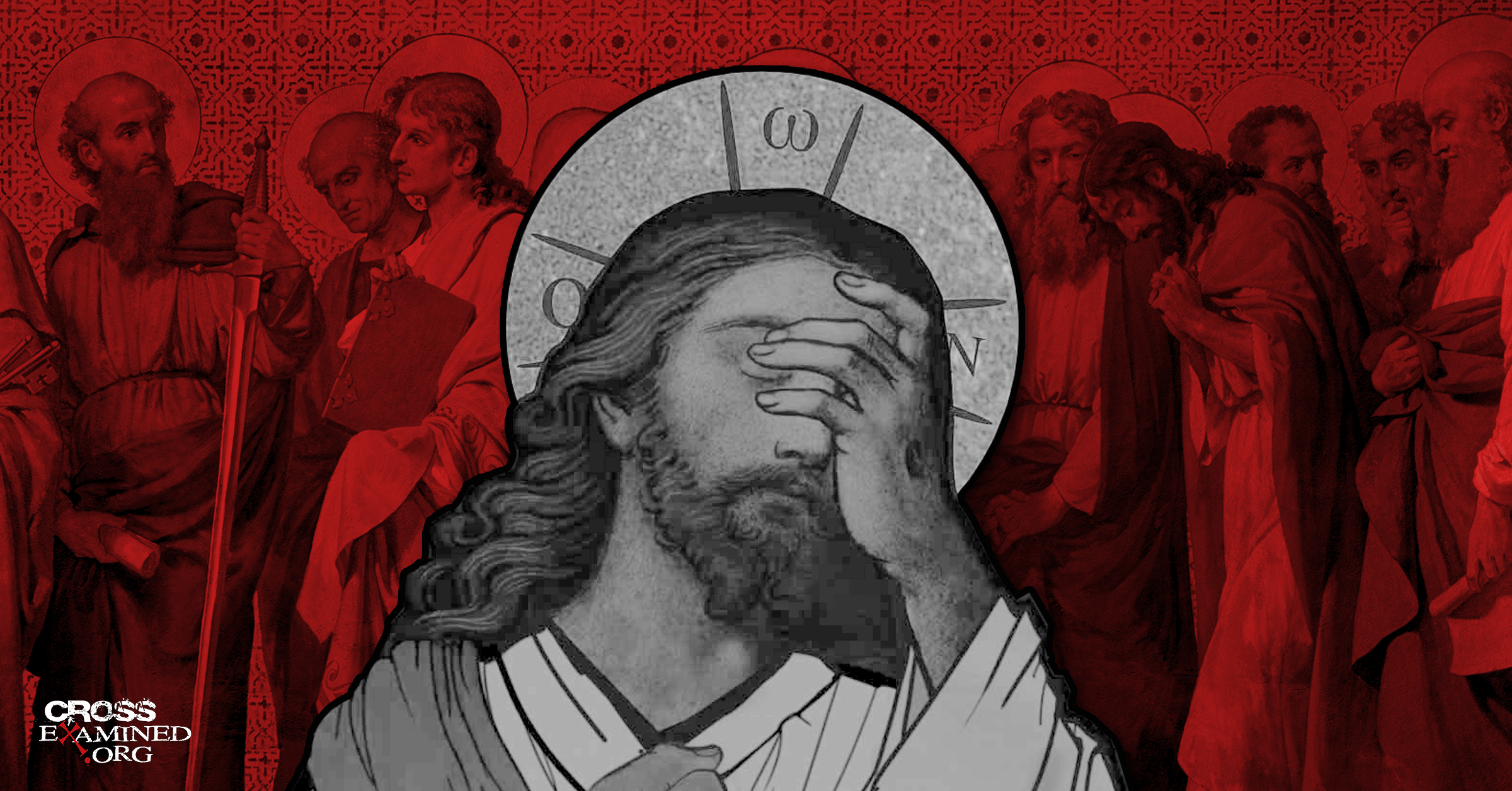Introduction
Science and faith issues are no doubt a hot topic of discussion when it comes to defending the truth of Christianity. Many Christians hold many different views about the timing and mechanism of God’s creative acts. Some views hold numerous details in common while others may hold only many details in common. It is the few differences here and there that cause much heat in this internal debate and cause unbelievers (and some Christians) to question the truth of the historic Christian faith as a whole. Today, I want to look at one of the more common distinctives between Christians who believe that the universe is young (6,000-10,000 years old) and those Christians who believe that the universe is ancient (~13.7 billion years old).
But before I get to the specific challenge, I need to set a foundation. First, I am an old earth creationist (OEC), so I will defend the latter of the two views above; however, I will not appeal to God’s actions (creation) today; rather I will limit my appeals to Scripture alone. Second, there are numerous areas of agreement among young and old earth creationists just within the doctrine of creation (not to mention the rest of the Christian worldview), and I feel that the differences, because of their ability to undermine the truth of the Christian worldview, tend to get more of the focus than the common ground. I have a list of more than forty areas of agreement in my article “What Do Young Earth and Old Earth Christians Agree Upon Regarding Origins?” to help Christians remember these area of unity and be more gracious in our discussions with each other. The primary two areas of agreement that are important for today’s topic are that both young- and old- earth creationists affirm biblical inerrancy and that Adam and Eve were historically the first humans. With those in place, here we go!
The Claim: Jesus Was A Young Earth Creationist
In Mark 10:6 Jesus teaches, “But from the beginning of creation God made them male and female.” Many young earth creationists (YEC) use this passage as a proof text that demonstrates that their interpretation of Genesis 1 is the interpretation that Jesus held (see this article from the YEC organization Answers In Genesis: Jesus Devastates An Old Earth). Young earth creationists believe that God created Adam and Eve between 144 hours and 168 hours after He created the universe. Old earth creationists believe that God created Adam and Eve between 100,000 and 200,000 years ago. So, the YEC argument goes like this:
- Jesus taught that Adam and Eve were created at the beginning of creation of the universe.
- The YEC creation of Adam and Eve is closer to its date of creation of the universe than is the OEC creation of Adam and Eve to its date of creation of the universe.
- Therefore, Jesus was teaching the YEC interpretation of Genesis 1.
The Fatal Flaw
On the surface, the argument does seem legitimate and is certainly persuasive. I’m sure many have seen and some have used this argument, sometimes with a slightly different second premise, but the first premise and the conclusion are always the same. However, there is one fatal flaw to all these versions. “144 hours later” is not the same as “the beginning of creation of the universe,” and, to be fair, neither is 100,000 to 200,000 years later either. The first premise (the one premise that appears in all the versions of this argument) is simply false. The falsehood of the first premise is what logically undermines the conclusion. But is the defeat of the first premise really that cut-and-dried? Perhaps not. The doctrine of biblical inerrancy may have an allowance that permits the first premise to be true.
Finding The Proper Interpretation
A statement can be true but not complete in its precision, just like 3.14 or 3.14159 both accurately represent pi even though they have different levels of precision. A lack of precision does not necessarily undermine the truth of a claim, nor does a lack of precision necessarily undermine the doctrine of biblical inerrancy. In the case of Mark 10:6, it is true; however, it is not explicitly precise. “The beginning of creation…’of what'” is where the debate on interpreting Mark 10:6 hinges. There are two ways to address this. First, let’s examine an argument for what the object of creation is, and second, let’s examine an argument for what the object of creation is not.
What Is Jesus Talking About?
When we read the passage, it is obvious that Jesus is describing the features of humans: “God created them male and female.” So, the specific portion of God’s creation that is in view is that of humans. Notice that there is the pronoun “them” in the passage as well. A pronoun must have an explicit or implicit antecedent. If we are to interpret Jesus’ words to mean “From the beginning of creation of humans God made them male and female,” we see that the antecedent (implied by Jesus’ words but explicit in the interpretation of Jesus’ words) matches that of the object of creation that Jesus is obviously referring to in the passage.
What Is Jesus NOT Talking About?
But is there a way that the universe could be the object of creation yet Jesus be making a point about the creation of humans? The doctrine of biblical inerrancy certainly allows for truth without precision, so could the YEC simply say that Jesus was truthfully but imprecisely equating the time of the creation of man with the time of creation of the universe, making the object of the creation the universe? The answer is “no,” and here is why. It is generally recognized that there is a difference between “lack of precision” and “false.” This distinction is not always easy to identify, but in many cases, rules or methods can be used to identify the line. Back to my example of pi, the rules of rounding provides the boundary that logically judges that 3.15 is not a lack of precision but is a falsehood. In the case Mark 10:6, we can use the perspicuity of Scripture (allowing Scripture to interpret Scripture) to identify where the line of distinction precisely lies and can judge for us whether the proposed interpretation is a lack of precision or is a falsehood.
Genesis 1 clearly defines the location of the line of distinction for judgment. Genesis 1 places a hard line between “lack of precision” and “false” for any timing claim regarding the universe’s creation event at the beginning of the next “yom” (“day”). A lack of precision of another passage of scripture is permitted by Genesis 1 as long as the lack of precision is still within the boundary of the “yom” (“day”) of the creation of the universe. So, on the YEC view, “lack of precision” is biblically and doctrinally permitted if and only if the imprecise claim of Mark 10:6 falls within that first 24 hours. However, the claim is false if the lack of precision of timing is outside of the 24 hour window following the creation of the universe.
Genesis 1 states that Adam and Eve were created on Day 6. Since Day 6 falls outside that 24 hour window, claiming that the creation of Adam and Eve and the creation of the universe are imprecisely at the same time is outside the allowable limits of a lack of precision, thus it is outside the boundaries of an interpretation that is guided by biblical inerrancy and the perspicuity of Scripture. So, Genesis 1 judges that Mark 10:6 cannot be interpreted to mean “the beginning of creation of the universe” even with the doctrine of biblical inerrancy allowing for a lack of precision.
So, the interpretation of Mark 10:6 which includes the universe as the object of creation is false- not permitted as judged by the doctrine of biblical inerrancy via the perspicuity of Scripture. If anyone was to insist that the universe is the object of creation in Jesus’ statement, this would place them (YEC or OEC) in the position of denying not only the truth of biblical inerrancy but the use of biblical inerrancy in interpretation.
The Proper Interpretation Within the Bounds of Biblical Inerrancy and Genesis 1
We see that the object of creation cannot be the universe but rather is humans. When we understand “humans” as the antecedent of “them” and that it is the specific creation of which Jesus is describing both the beginning and features, the passage remains true, the doctrine of biblical inerrancy has properly guided to our interpretation of Mark 10:6, and Genesis 1 has rightfully judged our interpretation of the passage.
A Vital Decision
However, with this proper interpretation, the YEC loses claim to this passage as a proof-text of their view and as a defeater of other views. They also lose it as a supporting premise of their argument(s), and they lose the claim that Jesus was a YEC. The young-earth creationist has a choice: they can either give up the idea that Jesus held and taught their view, or they can surrender biblical inerrancy.
It is important to understand the ramifications of each of these options. If a YEC were to surrender Jesus as an infallible authority who holds their particular doctrinal interpretation, that is not a big deal. Why? Because Jesus did not speak to every doctrinal issue while on earth, and just because He did not speak to it while on earth does not mean that it is not true (its truth may be able to be established another way- including with the rest of Scripture, which Jesus, being God, did inspire). However, if the YEC surrenders the inerrancy of Scripture, then they lose the reliability of the accounts of Jesus teaching anything while on earth or inspiring human authors to teach while He was not on earth…so none of Scripture can be used to argue for the truth of any doctrine. With the first option, what is lost has the possibility of being regained, but with the second option everything is lost and nothing is regained.
It Gets Progressively Worse – Threats to the Church
Insisting upon the YEC interpretation of Mark 10:6, undermines biblical inerrancy (without even appealing to raw scientific data recorded from God’s creation). Such a position is essentially the same as the position of Progressive Christianity. Insisting upon an interpretation of any passage of the Bible that logically implies the denial of biblical inerrancy opens the door wide to this heretical movement within the Church. If a Christian recognizes the problem described in this post with the YEC interpretation and use of Mark 10:6, this could play a vital role in their “deconstruction” (see the book “Another Gospel: A Lifelong Christian Seeks Truth In Response to Progressive Christianity” by Alisa Childers about Progressive Christianity) should they not also be presented the viable alternative described above. And their rejection of the Bible as a whole as being “God-breathed and is useful for teaching, rebuking, correcting and training in righteousness” (2 Timothy 3:16) and their rejection of the historic Christian worldview will not be far behind.
Now, does this mean that Genesis is not history? No. Does it mean that the early chapters of Genesis are not to be interpreted literally? Not at all. Does this mean that we are taking man’s word over God’s word? Not a chance. These and several other common concerns are addressed in these posts:
- Is Genesis History?
- 20 Myths of Old Earth Creationism
- What Do Young Earth and Old Earth Christians Agree Upon?
- Does Old Earth Creationism Compromise Scripture?
- Man’s Fallible Ideas vs. God’s Infallible Word
Conclusion – The Implications for Evangelism
We’ve seen in this article that it is simply false that Jesus devastates the old-earth interpretation of the early chapters of Genesis. Jesus did affirm the historicity of a literal Adam and Eve in Mark 10:6, but He did not say or imply anything about the time of their creation. The proper interpretation of Mark 10:6 has great apologetic significance. For when the correct interpretation of Mark 10:6 is recognized (Jesus did not teach that the universe is young, here), when unbelievers and Christians in the process of deconstruction test Jesus’ claims about creation against the revelations of creation, they cannot use Mark 10:6 as an excuse to say that Jesus’ claims about reality (including His claim to be God and the only way to the Father [John 14:6]) are false. Romans 1 remains true in its claim that the unbeliever is without excuse, even (or especially) when they look at the creation. Ultimately, if this passage is brought up as a defeater for Christianity, then we can simply demonstrate the misinterpretation, then get back to the evidence that answers the one question that the truth of the historic Christian worldview depends upon: Did The Historical Jesus Rise From The Dead?
Recommended resources related to the topic:
How Old is the Universe? (DVD), (Mp3), and (Mp4 Download) by Dr. Frank Turek
God’s Crime Scene: Cold-Case…Evidence for a Divinely Created Universe (Paperback), (Mp4 Download), and (DVD Set) by J. Warner Wallace
God’s Crime Scene: The Case for God’s Existence from the Appearance of Design (mp4 Download Set) by J. Warner Wallace
God’s Crime Scene: The Case for God’s Existence from the Appearance of Design in Biology DVD Set by J. Warner Wallace
What is God Like? Look to the Heavens by Dr. Frank Turek (DVD and Mp4)
I Don’t Have Enough Faith to Be an Atheist (Paperback), and (Sermon) by Norman Geisler and Frank Turek
__________________________________________________________________________________________________________________________________________________
Luke Nix holds a bachelor’s degree in Computer Science and works as a Desktop Support Manager for a local precious metal exchange company in Oklahoma.
Original Blog Source: https://cutt.ly/pWhiQ0P










